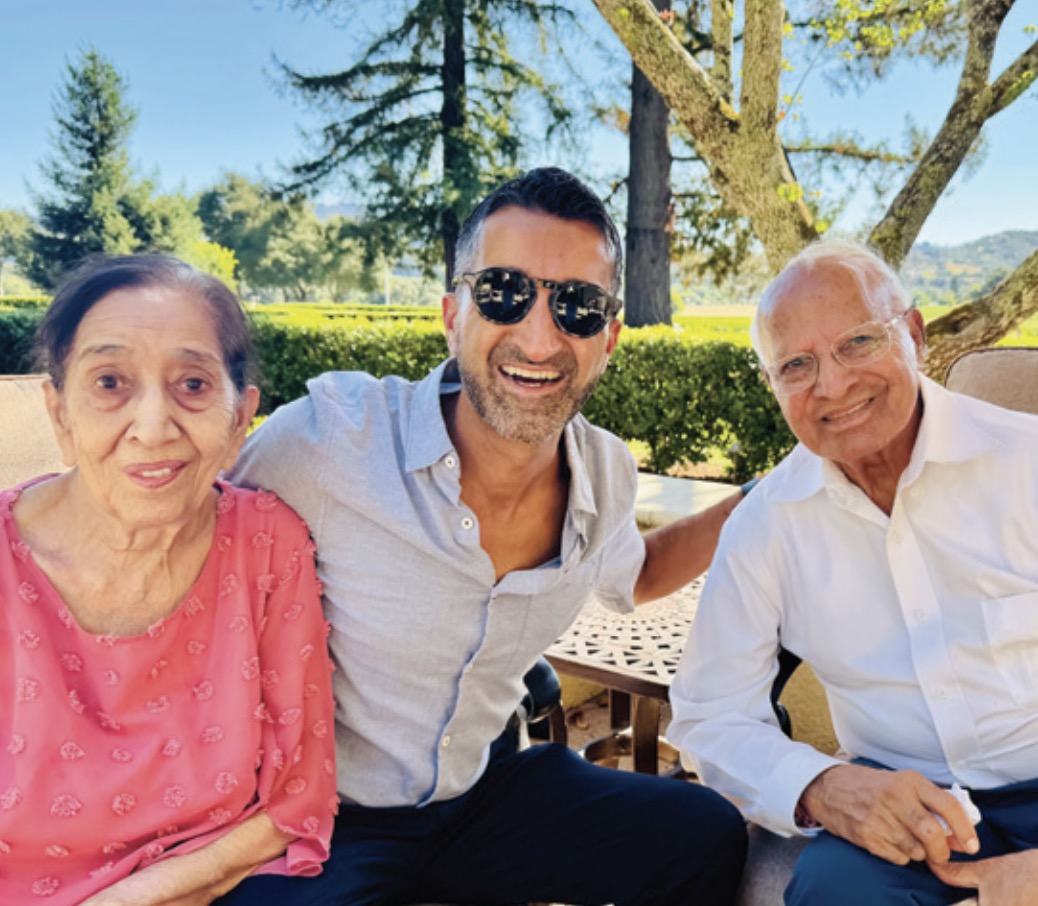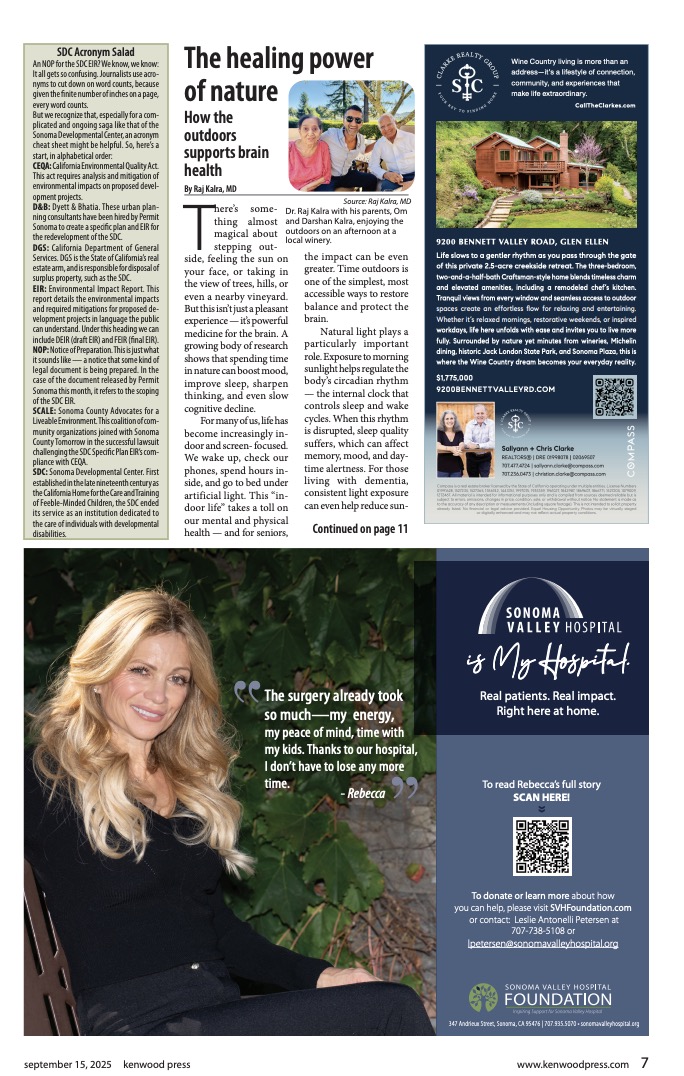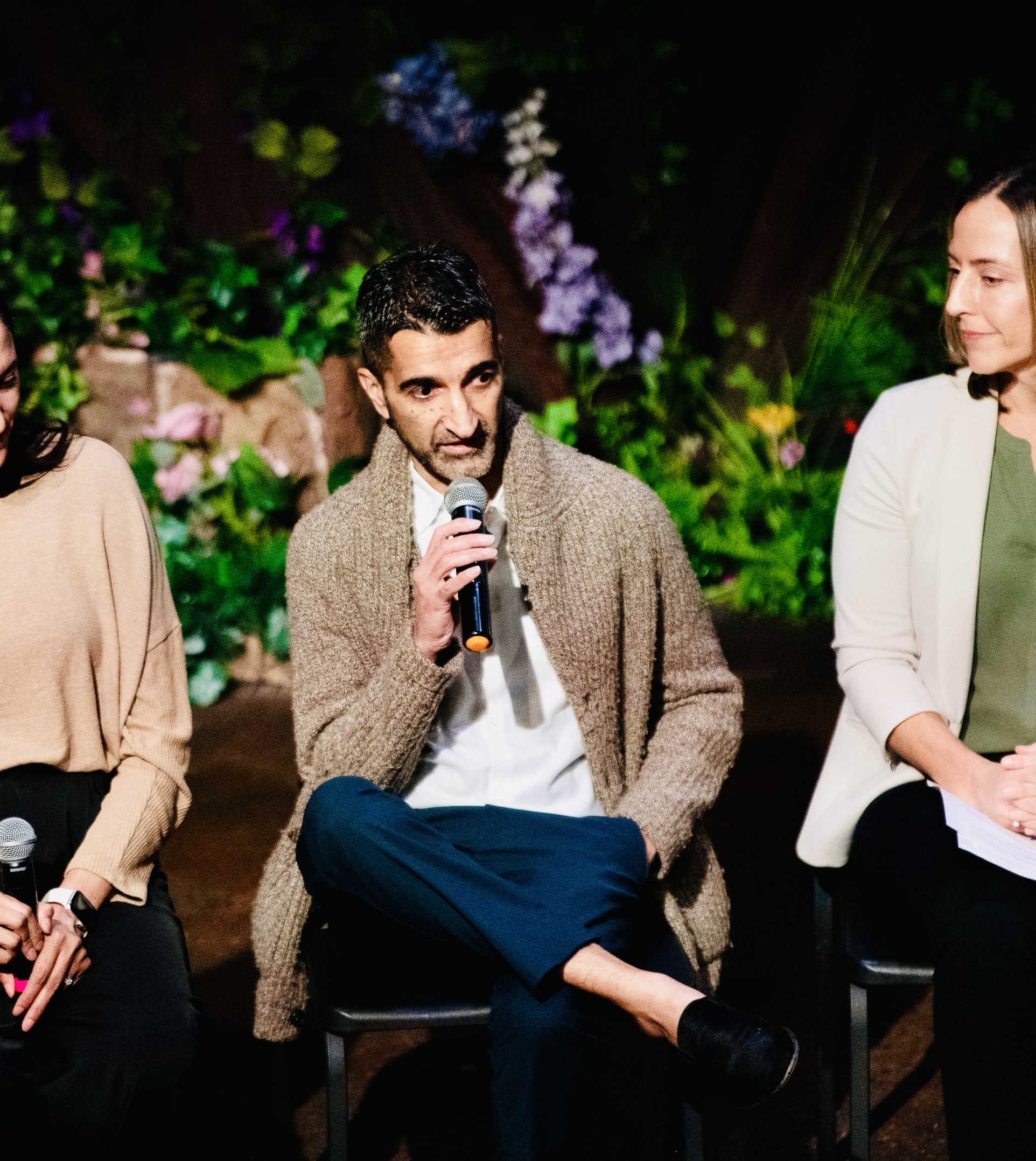FROM OUR BLOG
The Healing Power of Nature - How The Outdoors Supports Brain Health

There’s something almost magical about stepping outside, feeling the sun on your face, or taking in the view of trees, hills, or even a nearby vineyard. But this isn’t just a pleasant experience — it’s powerful medicine for the brain. A growing body of research shows that spending time in nature can boost mood, improve sleep, sharpen thinking, and even slow cognitive decline.
For many of us, life has become increasingly indoor and screen-focused. We wake up, check our phones, spend hours inside, and go to bed under artificial light. This “indoor life” takes a toll on our mental and physical health — and for seniors, the impact can be even greater. Time outdoors is one of the simplest, most accessible ways to restore balance and protect the brain.
Natural light plays a particularly important role. Exposure to morning sunlight helps regulate the body’s circadian rhythm — the internal clock that controls sleep and wake cycles. When this rhythm is disrupted, sleep quality suffers, which can affect memory, mood, and daytime alertness. For those living with dementia, consistent light exposure can even help reduce sun downing, the late-day confusion and agitation that many families find challenging.
Green spaces are good for the mind, too. Studies have shown that just 20 minutes in a park, garden, or along a walking path can lower stress hormones, reduce blood pressure, and boost feelings of calm. Walking outdoors engages the senses — the sound of birds, the smell of flowers, the feel of a breeze — which stimulates the brain in a way that indoor environments simply can’t match.
This idea — that connecting people with nature promotes wellbeing — is at the heart of biophilic design. Biophilic design intentionally brings elements of the natural world into our built environment through natural light, views of greenery, use of wood and stone, and easy access to outdoor spaces. Research shows this approach can lower stress, improve sleep, and create a sense of comfort — especially valuable for older adults and those living with cognitive changes.
The good news is that you don’t have to be an architect or designer to benefit from biophilic principles. At home, you can open curtains in the morning to let in light, bring houseplants or fresh flowers indoors, or create a quiet chair near a window where you can enjoy the view. Taking advantage of local walking paths, vineyard trails, or neighborhood parks just a few times a week can amplify these effects — supporting both mental clarity and emotional well-being.
As we age, our connection to the natural world becomes not just a pleasure, but a prescription for brain health. The sights, sounds, and rhythms of nature remind us to slow down, breathe deeply, and be present. In doing so, we give our minds and bodies a chance to reset, restore, and thrive

Dr. Raj Kalra with his parents, Om and Darshan Kalra, enjoying the outdoors on an afternoon at a local winery.
Dr. Raj Kalra is a board-certified physician with over 15 years of clinical experience in physical medicine and rehabilitation, pain management, lifestyle medicine, and obesity medicine. As the founder and president of Aroha Memory Care, a lifestyle medicine and wellness-based memory care home set to open in Santa Rosa in 2025, Dr. Kalra is dedicated to fostering a nurturing environment that empowers seniors to thrive in health and well-being.





